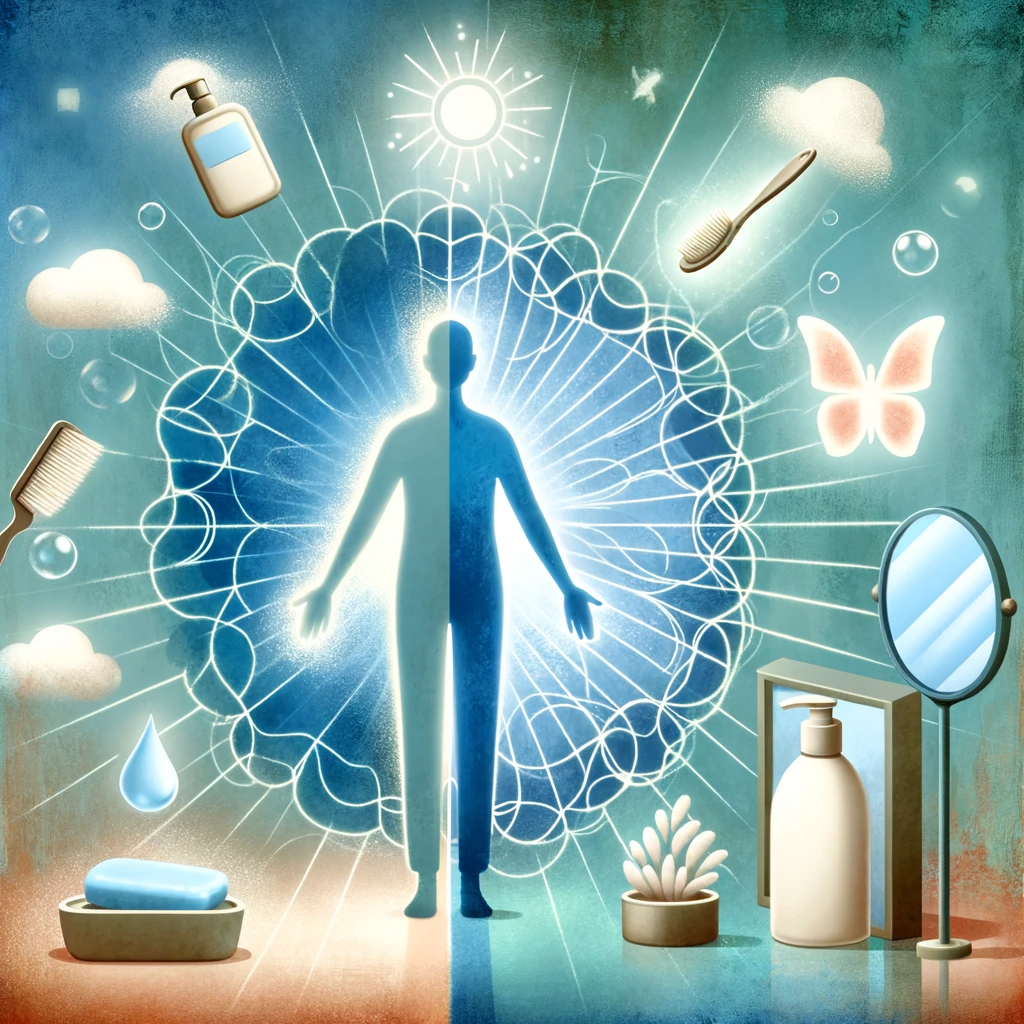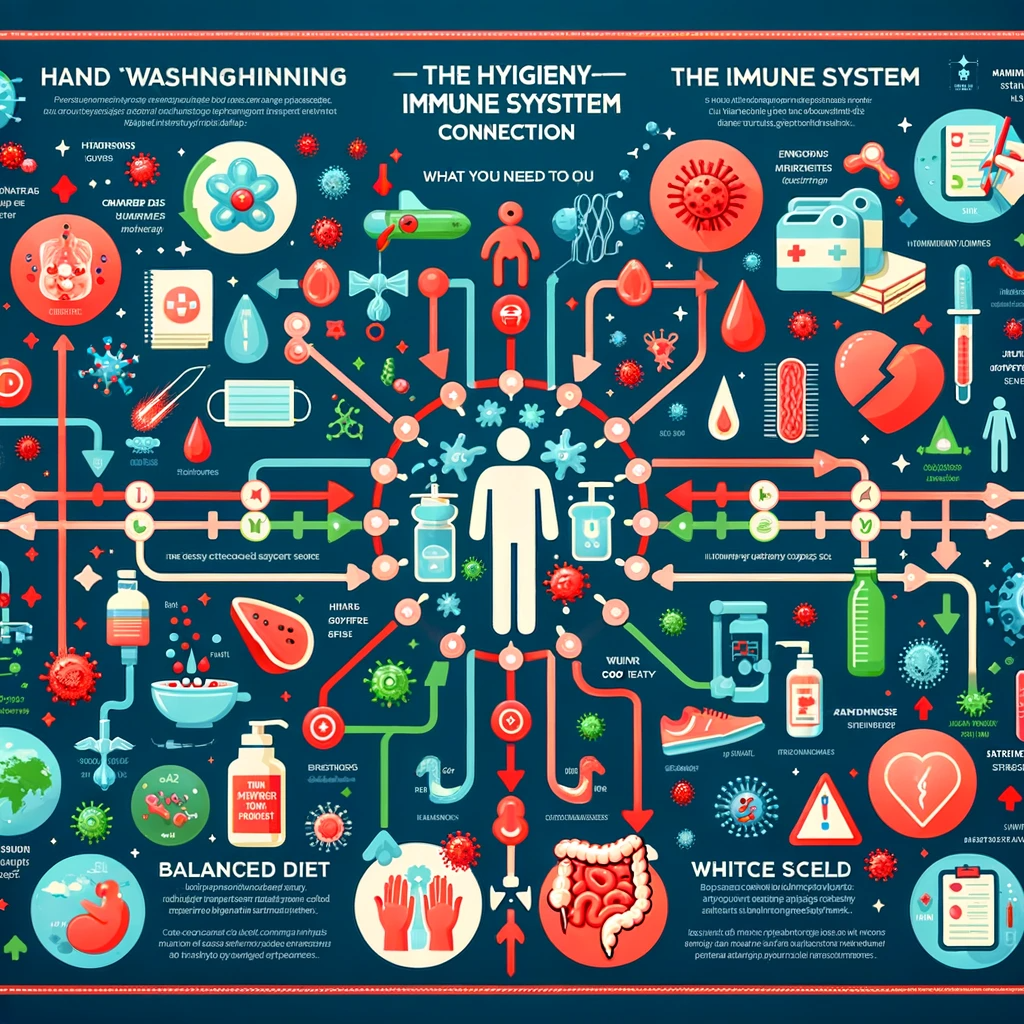Embarking on a journey towards enhanced cognitive health and mental clarity is a multifaceted endeavor, encompassing various aspects of our daily lives. The concept of Hygiene for Mental Clarity is not limited to merely maintaining physical cleanliness; it extends into the realms of nutrition, physical activity, sleep quality, and stress management. Each of these domains plays a pivotal role in shaping our mental state, influencing our ability to think, learn, remember, and maintain emotional balance. This comprehensive guide delves into the intricate connection between these elements and cognitive well-being, offering practical advice and insights on how to nurture and protect our mental faculties through everyday practices. From the foods we eat to the way we sleep, from our exercise routines to our methods of managing stress, this guide aims to equip you with the knowledge and tools necessary for sustaining and enhancing mental clarity. Join us as we explore the synergistic relationship between mind and body, and discover how to harness it for optimal cognitive health.
| Category | Tips | Tricks |
|---|---|---|
| Nutrition | Incorporate brain-boosting foods like blueberries, nuts, and fatty fish. Stay hydrated and limit processed foods. | Plan meals ahead to include a variety of brain-healthy ingredients. Use a water bottle with hourly markers to stay hydrated. |
| Exercise | Engage in regular aerobic exercises like walking or swimming. Focus on consistency rather than intensity. | Incorporate exercise into daily activities, like taking the stairs. Use fitness apps to track progress and stay motivated. |
| Sleep | Maintain a regular sleep schedule. Create a restful environment and limit screen time before bed. | Develop a bedtime routine with activities like reading or light stretching. Use sleep tracking apps to monitor sleep patterns. |
| Stress Management | Practice mindfulness and relaxation techniques. Organize your day to reduce overwhelm and maintain work-leisure balance. | Set aside specific times for relaxation and hobbies. Use time management tools to efficiently structure your day. |
Hygiene for Mental Clarity: An Essential Guide to Cognitive Well-being
Hygiene for Mental Clarity isn’t just about physical cleanliness; it encompasses a range of practices aimed at maintaining and improving cognitive health. Just as we brush our teeth and shower regularly for physical hygiene, mental clarity requires its own set of routines. These routines include managing stress, ensuring adequate sleep, maintaining a balanced diet, and engaging in regular physical activity.
Stress Management: Chronic stress can fog our minds, making it challenging to think clearly. Techniques such as mindfulness, meditation, and deep breathing exercises can significantly reduce stress levels, thereby enhancing mental clarity.
Sleep Hygiene: Quality sleep is crucial. Establish a regular sleep schedule, create a restful environment, and avoid stimulants like caffeine close to bedtime. A good night’s sleep can dramatically improve cognitive function.
Nutritional Balance: Brain health is deeply connected to what we eat. Foods rich in omega-3 fatty acids, antioxidants, and vitamins are known to boost cognitive functions. Hydration is equally important; even mild dehydration can impair concentration and memory.
Physical Exercise: Regular physical activity increases blood flow to the brain and improves its health. Exercise also releases endorphins, which reduce stress and anxiety, leading to clearer thinking.
The Science Behind Mental Clarity: How Hygiene Affects Your Brain
Understanding how Hygiene for Mental Clarity impacts the brain involves delving into the science of neurology. The brain functions best when it is in a state of homeostasis, or balance. Factors such as stress, lack of sleep, poor diet, and sedentary lifestyles can disrupt this balance, leading to decreased cognitive abilities.
Neuroplasticity and Mental Exercises: Engaging in mental exercises like puzzles, learning new skills, or even playing certain types of video games can enhance neuroplasticity, which is the brain’s ability to form and reorganize synaptic connections, especially in response to learning or experience.
Gut-Brain Axis: Recent research highlights the importance of gut health in cognitive function. A balanced diet, rich in prebiotics and probiotics, can support a healthy gut microbiome, which is linked to improved brain health.
Environmental Factors: Clean, well-ventilated, and organized spaces can significantly impact mental clarity. Clutter and chaos can distract and stress the mind, whereas a clean and orderly environment can foster focus and productivity.
Effective Hygiene Practices for Enhancing Cognitive Function
Adopting Hygiene for Mental Clarity practices can lead to substantial improvements in cognitive function. Here are some effective strategies:
Regular Physical Check-Ups: Regular health check-ups can identify any underlying issues that might affect mental clarity, such as vitamin deficiencies or thyroid problems.
Digital Detox: Reducing screen time, especially before bed, can improve sleep quality and reduce mental fatigue.
Mindfulness and Meditation: Regular practice can enhance focus, concentration, and emotional regulation, contributing to clearer thinking.
Social Connections: Engaging in meaningful social interactions is crucial for mental health. It reduces feelings of loneliness and stress, which can cloud judgment and cognitive abilities.
Daily Habits: Incorporating Hygiene for Mental Sharpness
Integrating Hygiene for Mental Clarity into daily life can be simple yet effective. Here are some daily habits to consider:
Morning Routine: Start the day with a routine that includes hydration, a nutritious breakfast, and a few minutes of meditation or deep breathing exercises.
Work Environment: Keep your workspace clean and organized. Regular breaks during work, including short walks or stretches, can help maintain focus and clarity.
Evening Routine: Wind down with activities that promote relaxation, such as reading, light stretching, or listening to calming music. Avoid heavy meals and stimulants close to bedtime.
Journaling: Reflecting on your day and planning for the next can help clear your mind and reduce anxiety.
Nutrition and Hygiene: The Duo for Optimal Mental Health
The Role of Diet in Mental Clarity: A well-balanced diet is a pillar of Hygiene for Mental Clarity. Foods high in antioxidants, vitamins, and minerals boost cognitive functions and protect the brain from oxidative stress.
- Brain-Boosting Foods: Incorporate foods like blueberries, nuts, and fatty fish into your diet. These are rich in nutrients vital for brain health.
- Hydration: Drinking enough water is crucial for cognitive functions. Dehydration can lead to confusion and poor concentration.
- Avoiding Processed Foods: Processed foods often contain high levels of sugar and unhealthy fats that can hinder cognitive performance.
Balancing Macronutrients: A balance of carbohydrates, proteins, and fats is essential for brain health. Complex carbohydrates provide sustained energy, proteins are crucial for neurotransmitter production, and healthy fats support brain cell structure.
Physical Exercise and Mental Hygiene: Boosting Brainpower Naturally
The Impact of Physical Activity on the Brain: Regular exercise is not just good for the body; it’s also crucial for maintaining and enhancing cognitive abilities.
- Types of Exercise for Cognitive Health: Aerobic exercises like walking, cycling, and swimming are particularly beneficial for brain health.
- Exercise and Neurogenesis: Physical activity promotes the growth of new neurons in the brain, particularly in the hippocampus, a region associated with memory and learning.
- Consistency Over Intensity: Even moderate exercise, when done regularly, can have significant benefits for mental clarity.
Building a Routine: Integrating exercise into your daily routine can be simple. Start with short, manageable sessions and gradually increase the duration and intensity.
Sleep Hygiene: The Cornerstone of Mental Clarity
Understanding the Importance of Sleep: Quality sleep is fundamental for cognitive functions, including memory consolidation, attention, and decision-making.
- Creating a Sleep-Friendly Environment: Ensure your sleeping area is quiet, dark, and cool. Consider using white noise machines or blackout curtains if needed.
- Developing a Sleep Schedule: Going to bed and waking up at consistent times helps regulate your body’s internal clock, improving sleep quality.
- Avoiding Stimulants: Reduce caffeine and electronic device usage before bedtime to prevent sleep disturbances.
Practical Tips for Better Sleep: Include relaxation techniques like reading or taking a warm bath before bed. These activities signal to your brain that it’s time to wind down.
Stress Management and Hygiene: A Pathway to Cognitive Wellness
The Link Between Stress and Cognitive Function: High stress levels can significantly impair mental clarity and cognitive functions.
- Identifying Stress Triggers: Understanding what causes your stress is the first step in managing it effectively.
- Relaxation Techniques: Practices like deep breathing, yoga, and mindfulness can help reduce stress.
- Time Management: Organizing your day and setting realistic goals can prevent the feeling of being overwhelmed, which often leads to stress.
Balancing Work and Leisure: Ensure you have a healthy balance between work and relaxation. Engage in hobbies and activities that you enjoy and find relaxing.
Final Thoughts:
The pursuit of Hygiene for Mental Clarity is a holistic approach that requires attention to various aspects of our lifestyle. It’s not just about one aspect of health, but a symphony of factors working in harmony. By nurturing our bodies with nutritious foods, engaging in regular physical exercise, prioritizing restorative sleep, and managing stress effectively, we create an environment where our cognitive functions can thrive. These practices, though seemingly simple, have profound impacts on our mental clarity, overall brain health, and quality of life.
It’s important to remember that change doesn’t happen overnight. Incorporating these habits into our daily routines is a gradual process that requires patience and persistence. However, the rewards are immeasurable. Better mental clarity leads to improved decision-making, enhanced creativity, sharper memory, and a greater sense of well-being.
As we continue to navigate the complexities of modern life, let us remain committed to these principles of mental hygiene. By doing so, we not only enhance our cognitive capacities but also embrace a lifestyle that fosters long-term mental and physical health. This journey towards cognitive wellness is an investment in ourselves, one that pays dividends in every aspect of our lives.
FAQs:
- What is ‘Hygiene for Mental Clarity’ and why is it important?
- Hygiene for Mental Clarity refers to practices that enhance cognitive health and mental well-being. It’s important because it helps maintain focus, reduces stress, improves memory, and overall contributes to a healthier, more balanced life.
- How does nutrition affect mental clarity?
- Nutrition plays a crucial role in brain health. Foods rich in omega-3 fatty acids, antioxidants, and vitamins can enhance cognitive function, while a poor diet can lead to decreased mental sharpness.
- Can exercise really improve cognitive functions?
- Yes, regular physical exercise increases blood flow to the brain, which is crucial for neuron health and has been shown to improve memory, concentration, and problem-solving skills.
- What are some effective sleep hygiene practices for better mental clarity?
- Effective sleep hygiene practices include maintaining a regular sleep schedule, creating a restful sleeping environment, and avoiding stimulants like caffeine and screens before bedtime.
- How does stress impact mental clarity and cognitive health?
- High stress levels can impair memory, reduce focus, and negatively impact decision-making abilities. Managing stress through relaxation techniques and lifestyle changes is essential for maintaining mental clarity.
- Are there specific ‘brain exercises’ that can improve mental clarity?
- Yes, activities like puzzles, learning new skills, and certain brain-training games can enhance cognitive functions by improving neuroplasticity.
- How important is hydration in maintaining cognitive health?
- Hydration is very important. Even mild dehydration can affect concentration and cognitive function, so it’s crucial to drink enough water throughout the day.
- Can technology use affect mental clarity?
- Excessive use of technology, especially before bedtime, can disrupt sleep patterns and lead to mental fatigue. It’s important to balance digital life with offline activities.
- What role does social interaction play in cognitive health?
- Social interaction is vital for mental health. It helps reduce stress, improves mood, and can even enhance cognitive abilities like memory and attention.
- Is it possible to improve mental clarity at any age?
- Absolutely. Regardless of age, adopting healthy lifestyle practices related to diet, exercise, sleep, and stress management can significantly improve mental clarity and cognitive function.







